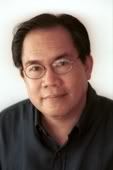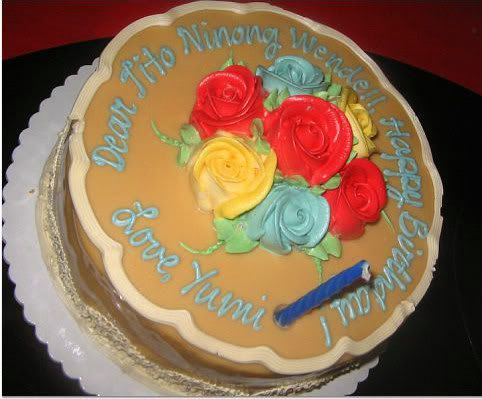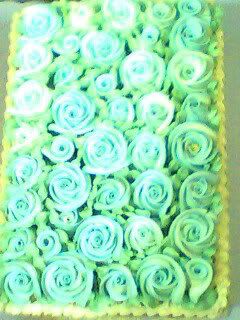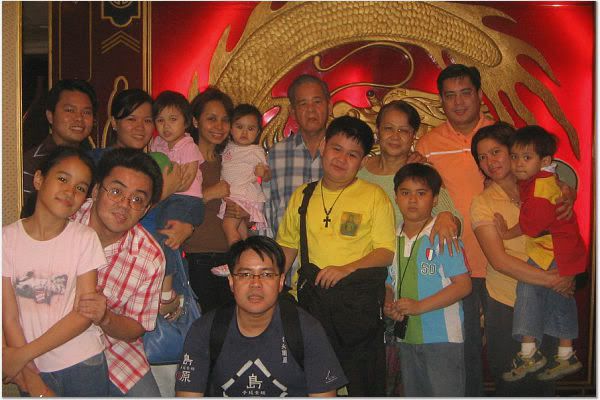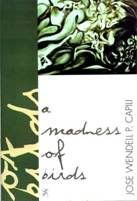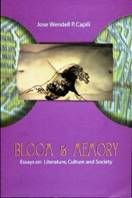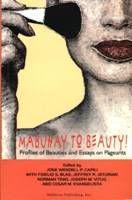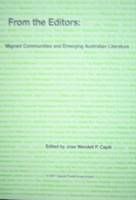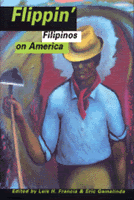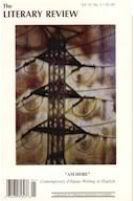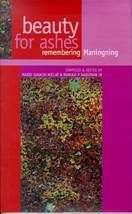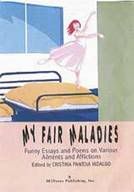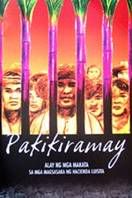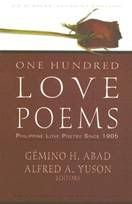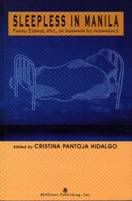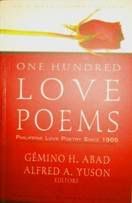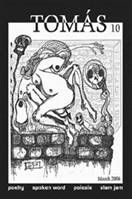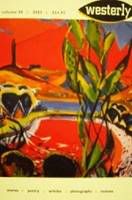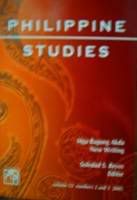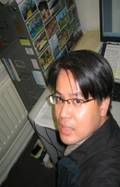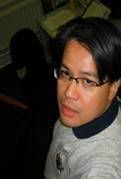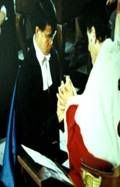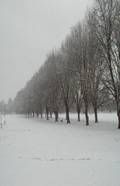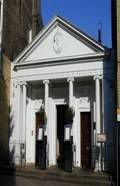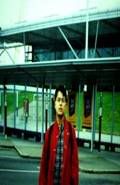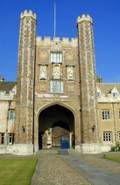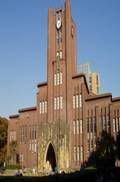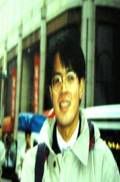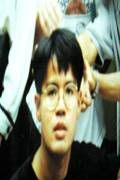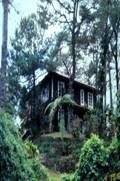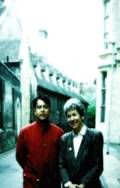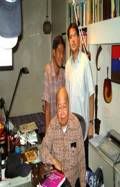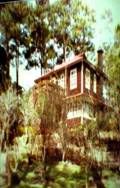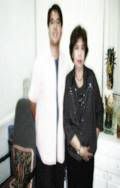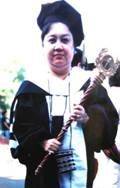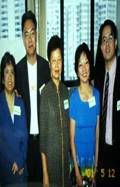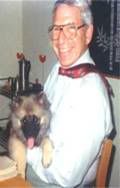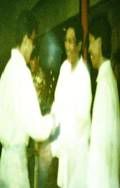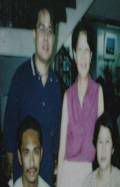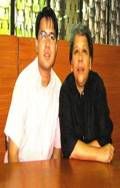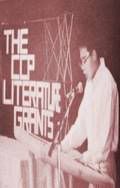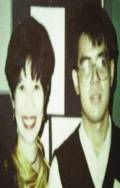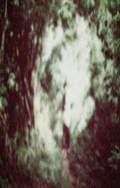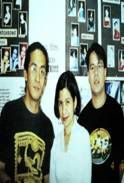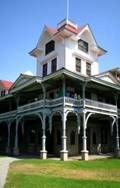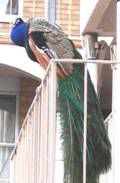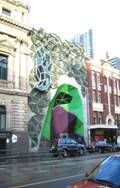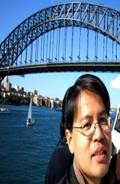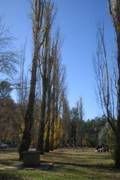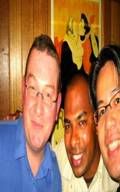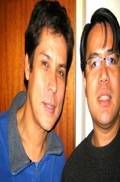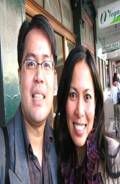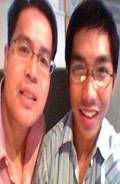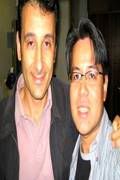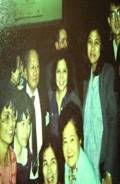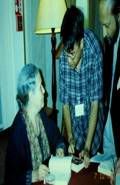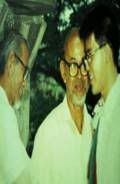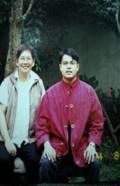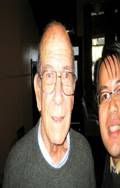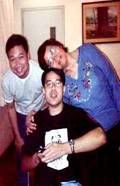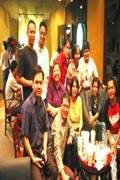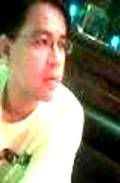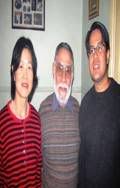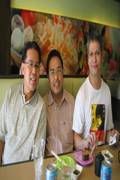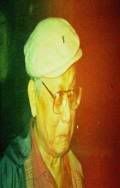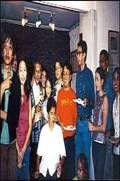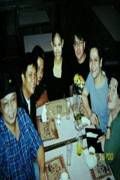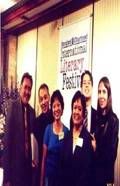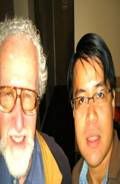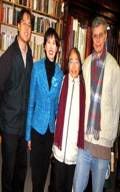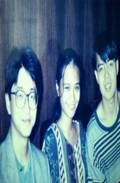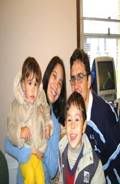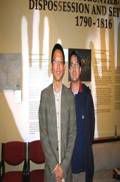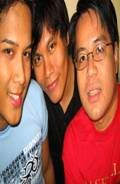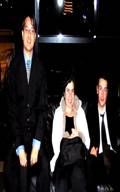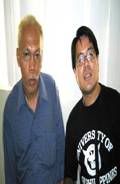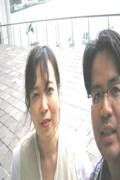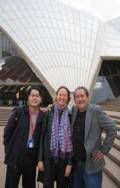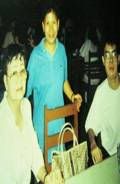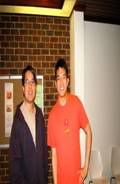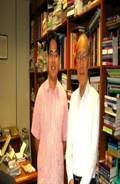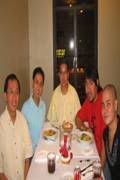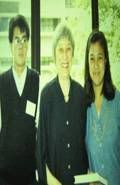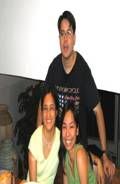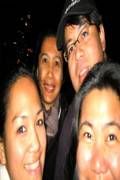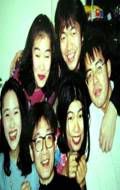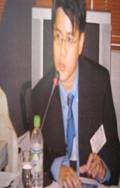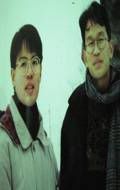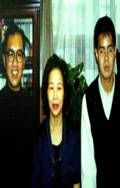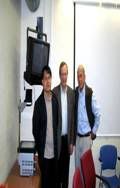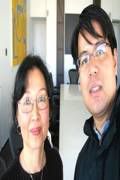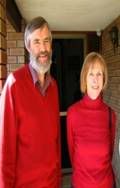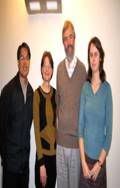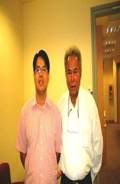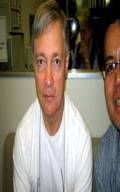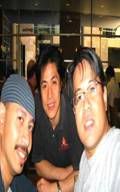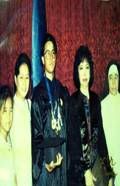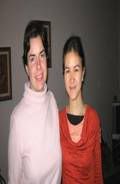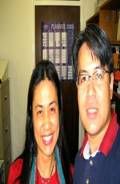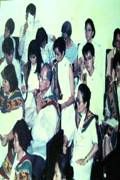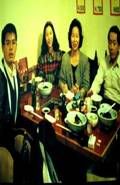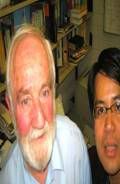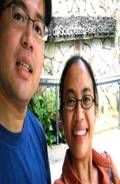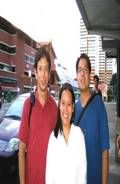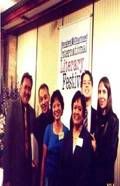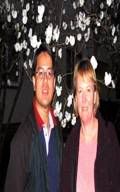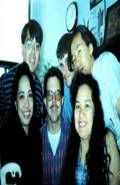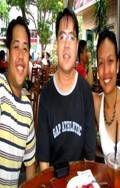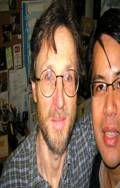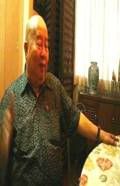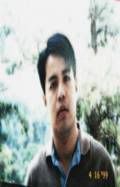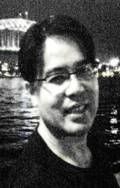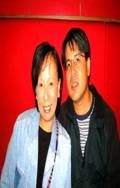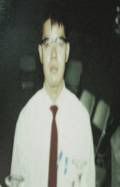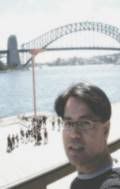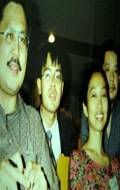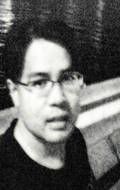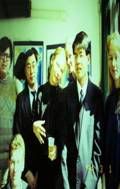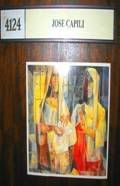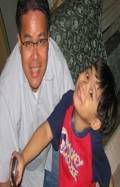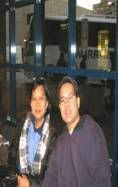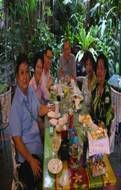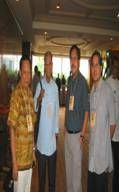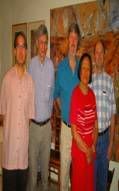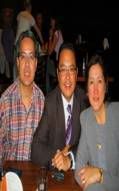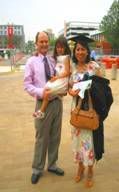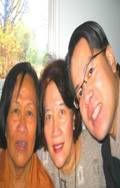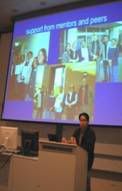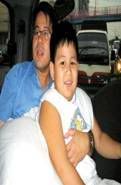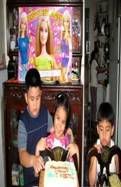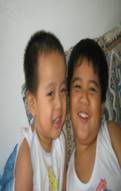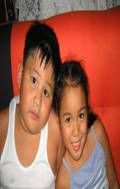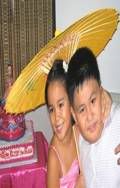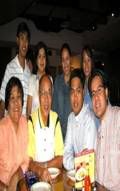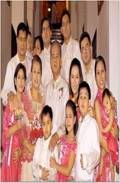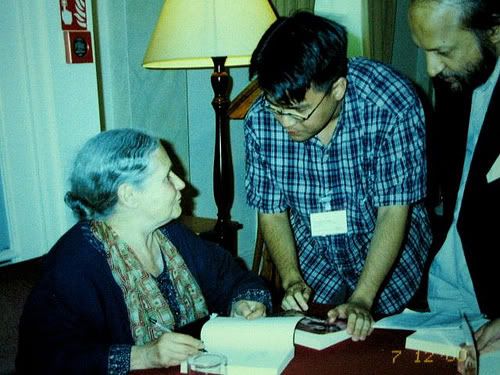
with 2007 nobel prize laureate for literature doris lessing and malaysian fictionist shan (m. shanmughalingam) at downing college, university of cambridge (12 july 2000)
***
Britain's Doris Lessing wins 2007 Nobel Literature Prize
Source: International Herald Tribune
NEW YORK: Doris Lessing, Nobel laureate. This year's winner of the literature prize should inspire a fresh look at the long, prolific career of the author of "The Golden Notebook" and dozens of other works, and a fresh debate about the taste of Nobel judges.
The 87-year-old Lessing, whose novels, short stories, memoirs and plays have reflected her own unexpected journeys across time, space and ideology, was praised Thursday by the Swedish Academy for her "skepticism, fire and visionary power."
"I've won all the prizes in Europe, every bloody one, so I'm delighted to win them all," said Lessing, alighting from a taxi outside her brick row house in North London as reporters gave her the news. Her previous honors include the James Tait Black Memorial Book Prize and the W.H. Smith Literary Award.
"It's a royal flush," she said.
For at least one generation of women, "The Golden Notebook," Lessing's 1962 novel about a writer's personal and political reckoning, was a moment of self-discovery comparable to "Catch-22" for anti-war protesters or "The Catcher in the Rye" for teenagers.
But the Swedish academy's announcement was stunning even by the standards of Nobel literature judges, who have been known for such surprises as Austria's Elfriede Jelinek and Italy's Dario Fo, picks challenged for valuing political dissent over artistic merit.
Lessing, almost two weeks short of her 88th birthday, is the oldest choice ever for a prize that usually goes to authors in their 50s and 60s. Although she continues to publish at least every other year, she has received little attention for her recent work and has been criticized as didactic and impenetrable.
"This is pure political correctness," American literary critic Harold Bloom, commenting on Lessing's Nobel, told The Associated Press. "Although Ms. Lessing at the beginning of her writing career had a few admirable qualities, I find her work for the past 15 years quite unreadable ... fourth-rate science fiction."
Lessing, ironically, is herself a critic of political correctness who broke with the British Communist Party in the 1950s, has often presented women (including herself) as vain and territorial and has insisted that "The Golden Notebook" is not a "trumpet for Women's Liberation," as she wrote in the introduction for a 1993 reissue.
"I think a lot of romanticizing has gone on with the women's movement," she told the AP in a 2006 interview. "Whatever type of behavior women are coming up with, it's claimed as a victory for feminism — doesn't matter how bad it is. We don't seem go in very much for self-criticism."
The former Doris May Tayler has never liked to be told what to do, or how to think. In her memoir, "Under My Skin," published in 1994, she remembered herself as a contrarian child with a mantra of three stubborn words: "I will not."
She didn't need teachers; only her eyes and mind. As a girl, she read "The Secret Garden," biblical tales, Rudyard Kipling, history books about Napoleon, the Crusades, and Benjamin Franklin and Charles Dickens, whom she chose against the advice of the nuns in her convent. By age 10, she had written a one-act play featuring Shakespearean monarchs.
"I didn't go to school much, so I taught myself what I knew from reading," Lessing, who dropped out as a teenager, said in 2006.
Born in Persia (now Iran) and witness to the collapse of governments (Rhodesia), empires (the British), ideologies (Communism, Nazism) and two of her own marriages, Lessing has long given up on seeing the world as capable of being mastered, whether for good or for evil.
"She is a realist," says fellow author Shirley Hazzard, whose "The Great Fire" won the National Book Award for fiction in 2003. "Her intention is not to amuse. She's a serious writer who deals with thing she feels very, very strongly about."
The variety of her work seems infinite — from colonial Africa in "The Grass Is Singing" to dystopian Britain in "Memoirs of a Survivor" to the new Ice Age in "Mara and Dann." She has been influenced by Sufism and Communism and collaborated with Philip Glass on a science fiction opera.
But her books are unified by parallel themes: Nothing lasts; nothing really changes. Whether a marriage or an army of millions, she can imagine its birth and its death. She sees herself as a particular kind of person — living in a certain time and place — who could have easily turned out differently.
"When you look at my life, you can go back to the late 1930s," she said in 2006. "What I saw was, first of all, Hitler, he was going to live forever. Mussolini was in for 10,000 years. You had the Soviet Union, which was, by definition, going to last forever. There was the British empire — nobody imagined it could come to an end. So why should one believe in any kind of permanence?"
***
 Lessing was born in Persia and grew up on a farm in southern Africa |
Doris Lessing, who has won the 2007 Nobel Prize for Literature has been one of Britain's most prominent writers for more than 50 years. Her novels, most notably The Grass is Singing and The Golden Notebook, weave political and sexual themes into a complex narrative thread.
Lessing's themes are big ones: racism, communism, terrorism and environmental destruction.
Her output ranges from romances through to science fiction and take in the most intimate internal dialogues and sweeping historical set-pieces.
Doris May Taylor is a child of the British Empire. Born in Persia - now Iran - in 1919, she was brought up in Southern Rhodesia - now Zimbabwe - where her father owned a farm.
Her African childhood, amid the vastness of the bush and her time at convent schools, brought her a wealth of inspiration.
In 1949 after two failed marriages, the second to a hard-line communist, Gottfried Lessing, she left Africa, and most of her family, and moved to London to try her hand at writing.
Multi-layered tales
Lessing's first novel, The Grass is Singing, published the following year, was an instant bestseller.
The story of the wife of a white farmer and her affair with an African servant, the book broke new ground, both in terms of its outlining of an interracial relationship and in the sheer detail Lessing gave to her characters' internal lives.
Perhaps Lessing's most controversial novel was The Golden Notebook, published in 1962.
A multi-layered story about the different areas of one woman's personality, her passions and hatreds, it is by far the most complex, and longest, work Lessing has ever produced.
 Lessing has written more than 30 novels |
She has also produced startling works, such as the semi-autobiographical Children of Violence series and Briefing for a Descent into Hell (1971), a frightening and surreal examination of mental illness.
By the late 1970s, Lessing left the African-themed novel behind and moved into science fiction.
In the Canopus in Argos series, she outlines a dystopic vision of the future, with natural catastrophes and tyranny becoming the norm.
The critic, Paul Schlueter, noted that Lessing's "high seriousness in describing Earth's own decline and ultimate demise is as profoundly apocalyptic as ever".
More recently, Lessing has produced novels like The Good Terrorist (1985), a satire on romantic politics, and The Fifth Child (1988), about the havoc wreaked on a family by an antisocial and violent child.
Her latest work, The Cleft, is a sci-fi novel which imagines what happens to a mythical all-female world when men are introduced.
Speaking at the Hay literary festival in June, Lessing said the book had been partly inspired by her own experience of giving birth at 19 and the woman in the next bed, already a mother of two girls, harshly rejecting the son she had just had.
The writer also addressed her critics - saying she had been surprised by the "horrible" early reviews of The Golden Notebook.
"There's something abrasive in me because I have often made people very cross," she mused.
But she said as a writer it was important not to care what other people think and that the profession must honour that.
"We are free... I can say what I think. We are lucky, privileged, so why not make use of it?"
Labels: british writers, doris lessing, literature, nobel prize, writers
